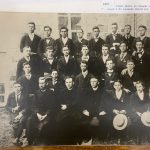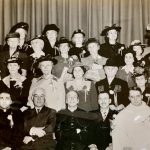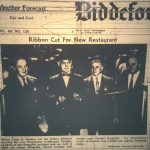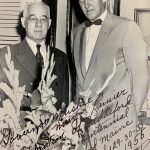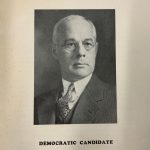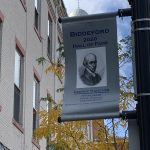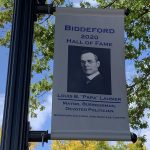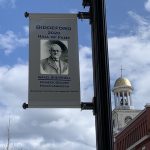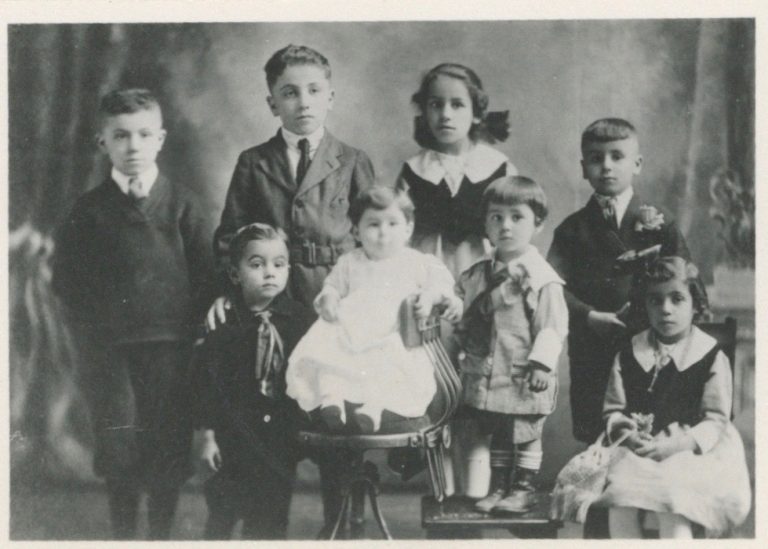
Left to right front row- William (Bill), Alexander (Alex), Theodore (Ted), Athena
Back row- Archie, James (Jimmy), Zoe, Charles (Charlie)
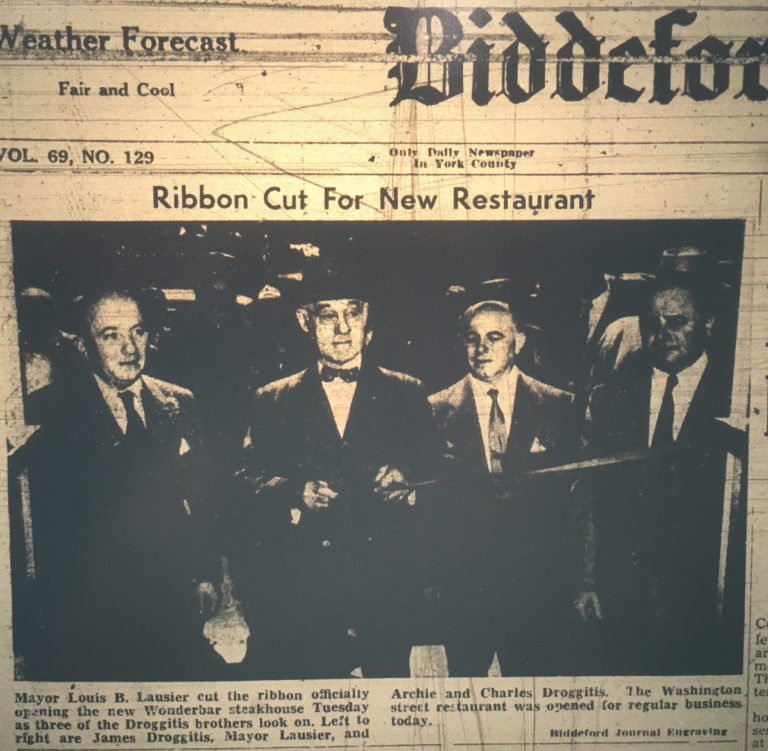
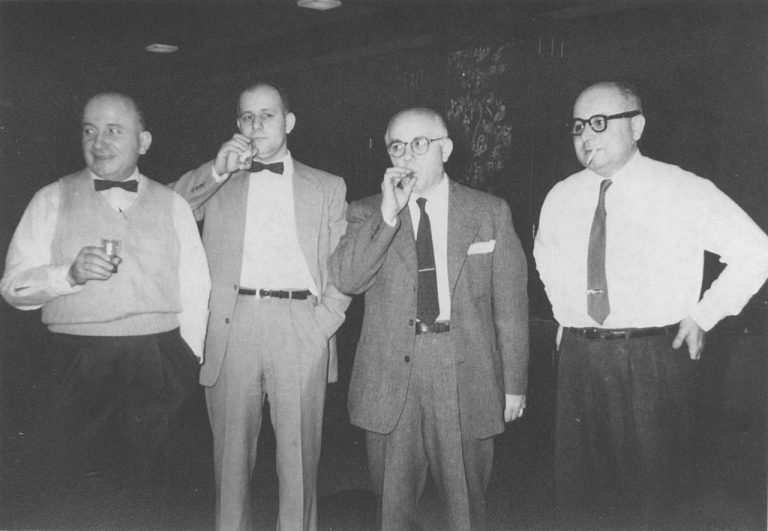
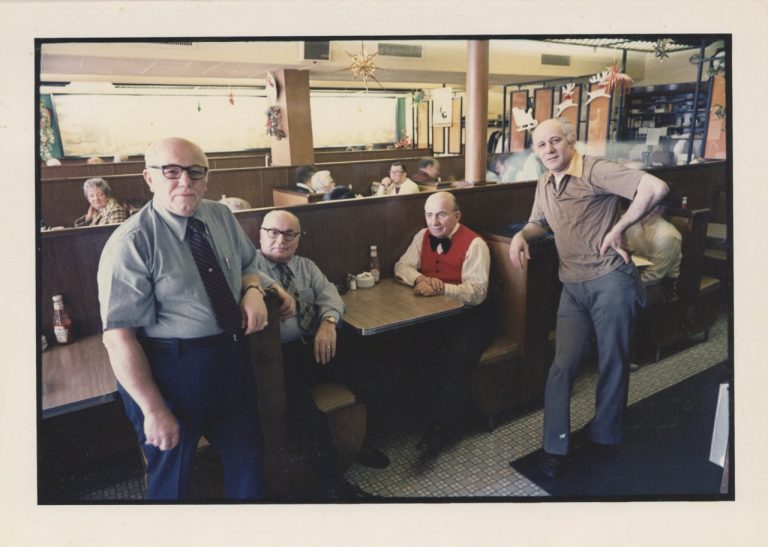
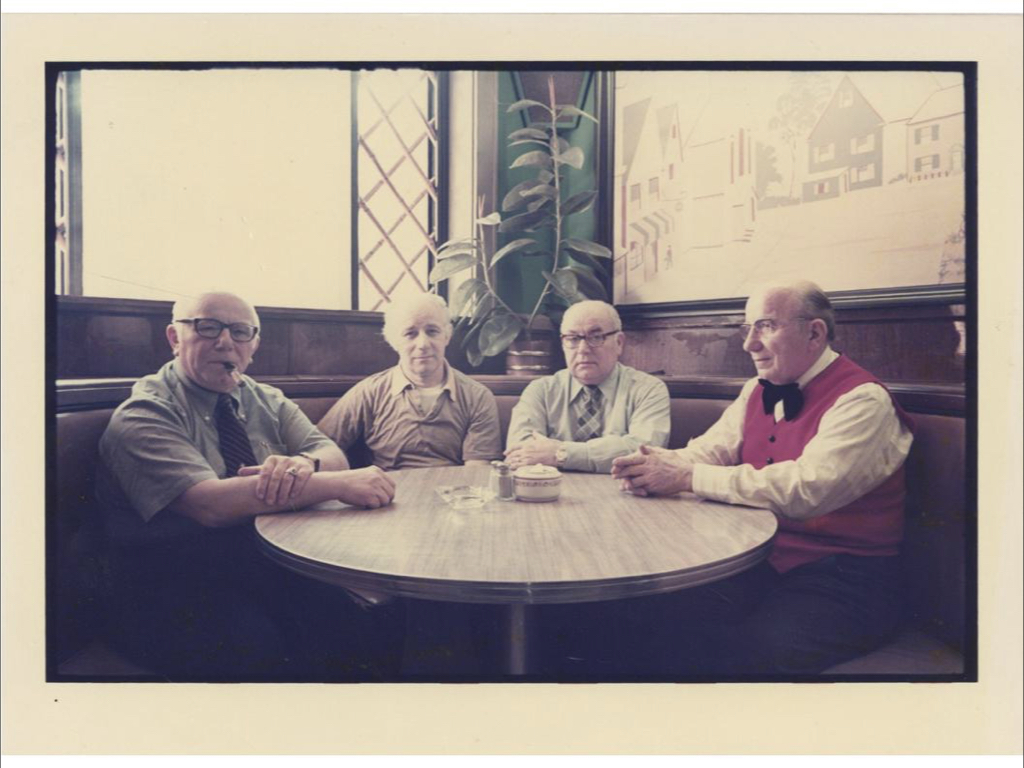
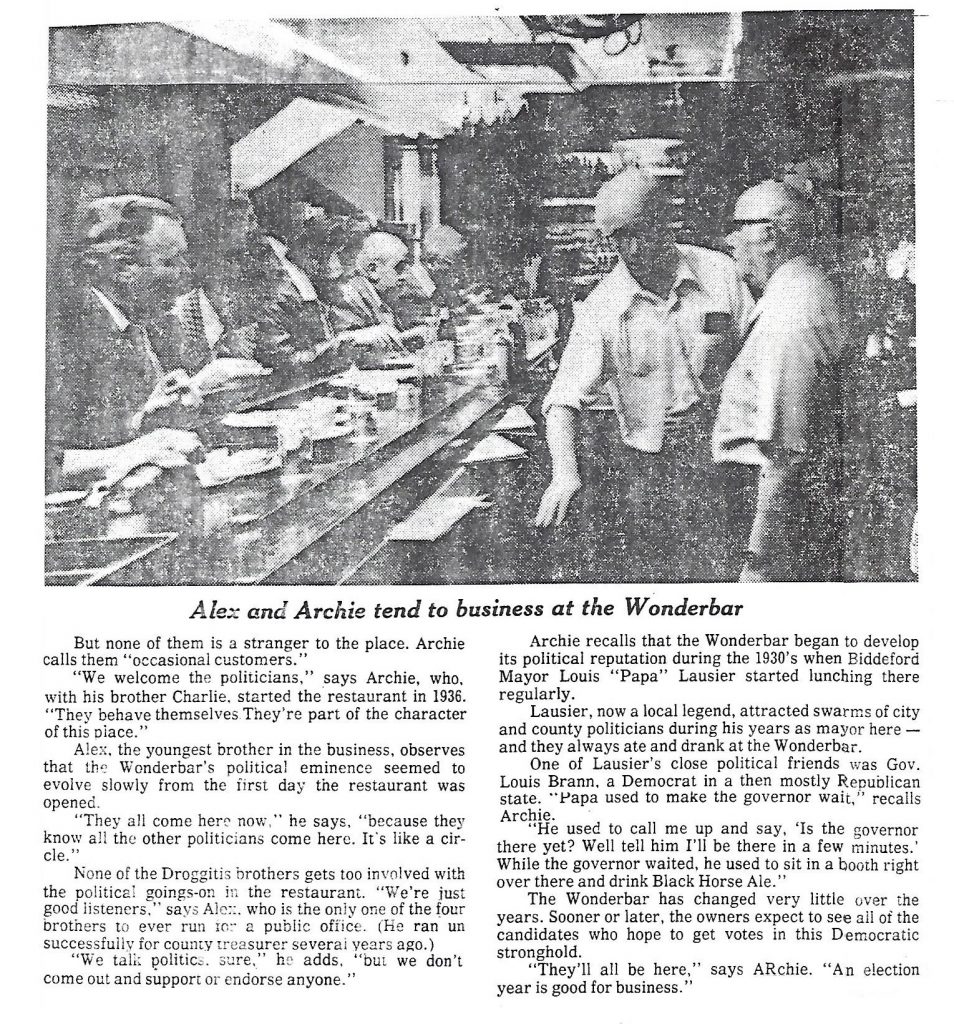
The Droggitis Brothers
James (Jimmy), Archie, Charles (Charlie) and Alexander (Alex)
The sons of Greek immigrants to Biddeford in the early 20th century, they and two other brothers and two sisters first lived at 5 Foss Street. Their father, Spiros was a shoe cobbler who operated a shoe shine/shoe repair shop at 115 Main Street. Having to vacate that property in 1921, their father purchased the property of two businesses at 12-14 Washington Street where he operated his shoe repair business while the family of ten lived above the business. The Droggitis brothers attended Biddeford public schools and worked at their father’s shoe repair business after school as well as at a shoe store that the family operated in Old Orchard Beach in the summer months.
Prohibition ended in 1933. Their mother, Georgia Droggitis, died in 1935 at age 60 in Hebron, Maine where she was being treated for tuberculosis. In the middle of the Great Depression, with their father in failing health, not wanting to continue in the shoe repair business and concerned about the health conditions working at the foundry, Archie and Charlie, with the assistance of other members of the family, converted their father’s business into a small tavern initially called Charles’ Café where they served sandwiches and beer to mill workers and other patrons. After Archie purchased a 35-foot mahogany bar at an auction in Boston, the restaurant, at brother Ted’s suggestion, became known as the Wonderbar Restaurant.
After WW II, Jimmy, Archie, Charlie and Alex became business partners. Jimmy managed the cash register and scheduled the staffing, Archie tended bar and closed at the end of the day, Charlie was the purchasing agent and managed banquets and catering while Alex helped everywhere, opening in the morning and making breakfasts. With the tag line “From a sandwich to a banquet,” the restaurant became the Wonderbar Steak House, a premier restaurant in southern Maine.
The Wonderbar soon became the hub for Biddeford politics. Tom Welch reported in the Portland Press Herald in an article entitled Wonderbar: It’s A Place To Go For Lamb And Politics: “To the working people of this mill city, the Wonderbar Restaurant is the place to go to meet friends and have a good meal for a reasonable price. But to people who are running for public office, it is the place where they can order baked lamb and get a side order of political insight for free.”
Besides running the restaurant, the Droggitis brothers were very active in the Greek community and Biddeford as a whole.
Sid Leavitt, columnist for the Portland Press Herald wrote in an article on the Wonderbar closing: “What made the Wonderbar unique was the family that created it…the four Droggitis brothers. Jimmy Droggitis, the boss and patriarch, stood like a monument at the cash register-polite and charming but unquestionably in control. Archie, second in command, standing behind the bar with a never-ending stream of conversation and a never exhausted imagination for nicknaming his patrons. Charlie, the laconic one, telling relaxed stories of other places and times. Alex, the youngest, doing nearly everything that had to be done in the place, including making the best blue cheese dressing in the region. The Wonderbar was a special place because the Droggitis brothers are a special family. They made their customers feel special.”
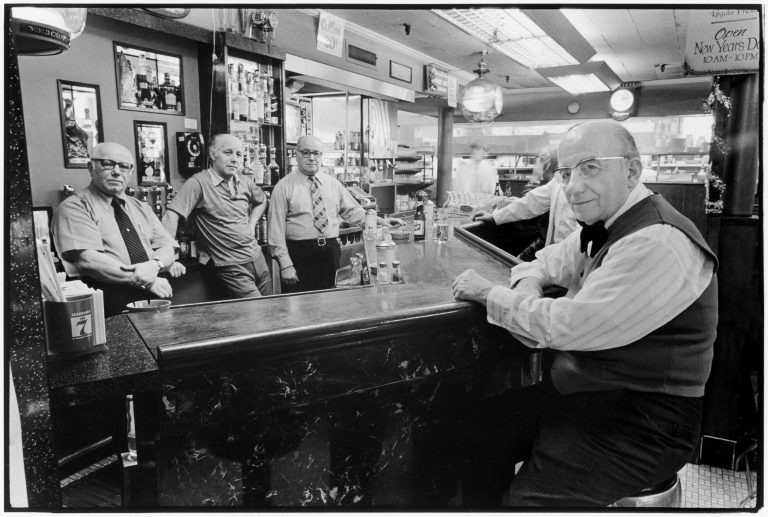
Photo courtesy of Stephen O. Muskie
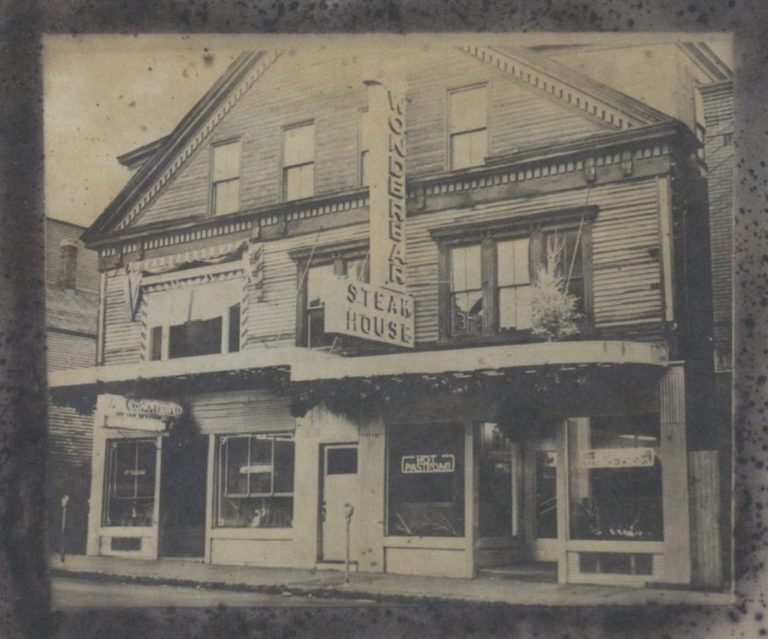
Louis " Papa" Lausier
Louis Lausier was born in Biddeford in 1879 to Canadian-born parents. He received his elementary education in Biddeford parochial schools and graduated from St. Anne’s College in Quebec. He returned to Biddeford to study law with Judge George F. Haley, chief justice of the Maine Supreme Court and passed the bar exam in 1906.
Early in his career he served as the attorney for the Pepperrell Trust Company and then served on its Board of Directors and although he was a lawyer, banker and businessman, his true love was politics. He served in the state legislature representing Biddeford, and locally three years as a city alderman, one term as city auditor and one term as city solicitor. In 1948 he captured the Democratic nomination for Governor, one of the first Franco-Americans to run for statewide office in Maine.
Politically, however, he was best known for serving 15 consecutive terms as mayor of Biddeford from 1941 to 1955 inclusively. He was proud of having the lowest tax rate in the state and was one of a vanishing breed of old time politicians. But throughout his long career in politics, Lausier was a controversial figure, loved by many and feared by others. His strongly held ideas of government were not always along orthodox lines, but the people of Biddeford endorsed them again and again while even token opposition to his re-election as mayor was infrequent.
It was written that Lausier ruled with “paternalistic benevolence.” Michael Guignard, who nominated Lausier, reflects on Lausier’s refusal to enforce a statewide law prohibiting the speaking of French in public schools other than in French language classes, even on the playgrounds before and after school. “For the Franco-American students attending public schools in Biddeford that paternalism meant they could speak their mother tongue in the schoolyard. For me and the hundreds of parochial school students in the city during his administration, that paternalism meant we could ride to school on a city bus for free, despite the doctrine of separation of church and state.”
“Lausier knew his people” wrote the Biddeford Daily Journal.
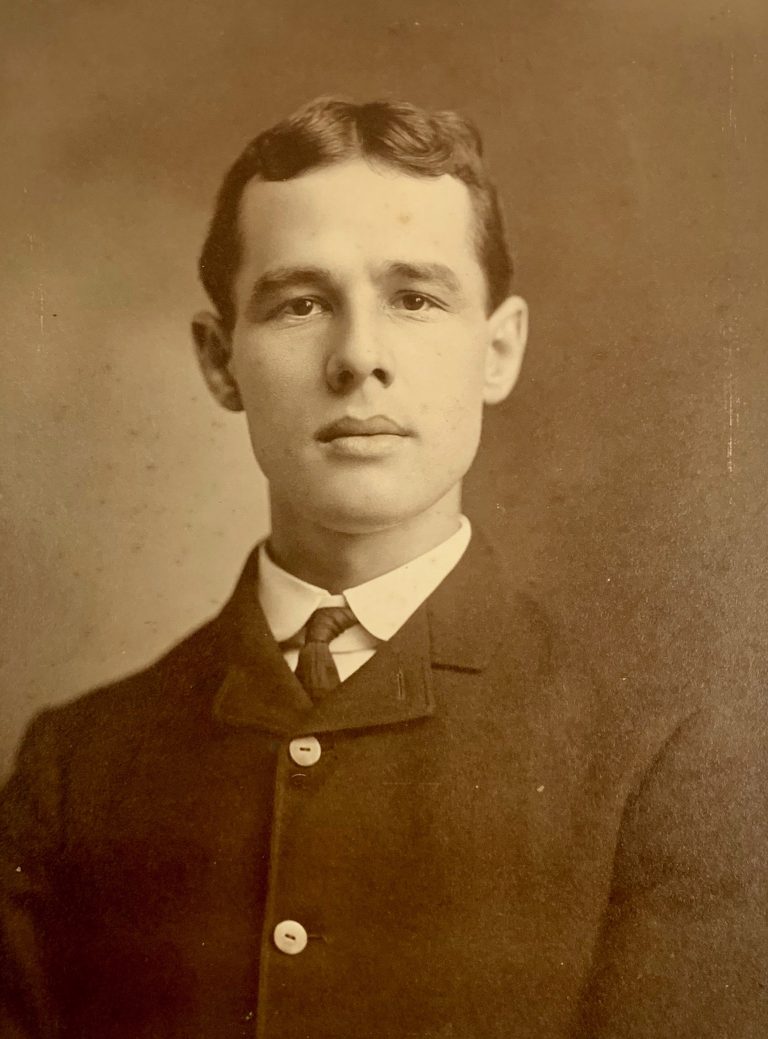
Photo above courtesy of McArthur Library
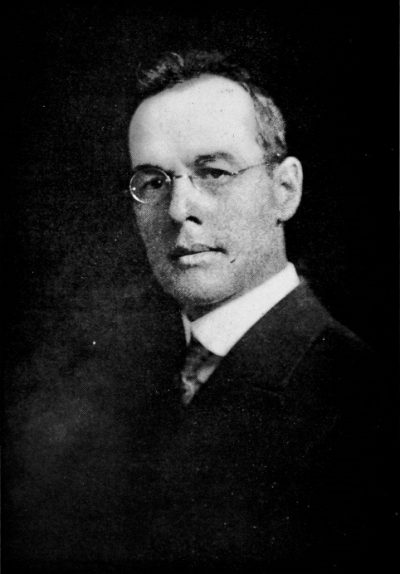
Photo above courtesy of McArthur Library


Israel Shevenell
On April 1, 1845, Israel Shevenell left his home in Compton, in the Eastern Townships region of Canada (now known as Quebec), and walked nearly 200 miles to Biddeford. He was 19 and looking for work, and when he arrived he said it was the busiest place he had ever seen. Shevenell is known as Biddeford’s first French Canadian settler and first French voter, casting his first vote for Abraham Lincoln in 1860.
He was a builder. For nearly 20 years he worked as a brick maker, a trade he learned when first coming to Biddeford, before he went into business for himself owning and operating a gravel pit. He built homes that still stand today, and helped organize and build St. Joseph’s Church on Elm Street. He built a family with his wife Marie-Louise and lived closely by his parents and younger brother’s family and other relatives in town.
He was a leader. In addition to business pursuits, he was heavily involved with the French-Canadian community, its associations and St. Joseph’s parish, and held various city positions over the years, including overseer of the poor. He was involved with social and community organizations and, in 1905, marched in the parade celebrating Biddeford’s 50th anniversary as a city, proudly carrying a banner reading “I was here in 55.” He was a leader within his family, providing support and work, as well as setting an example for industriousness and honesty.
He was a pioneer and an inspiration. He often traveled back and forth from Maine to Canada, and changed the course and geography of history as family and friends joined him in his connections with the communities that he loved. When he died in 1912 at the age of 86, he was remembered for his qualities; he was hard-working, tenacious, resilient, public spirited, faithful intelligent….and stubborn; and for how he put those qualities into practice over the course of his life to improve his own life and those of family, friends, communities and city.
Benjamin Stern
Born in Kovne, Lithuania on July 14, 1885 as Benjamin Chelner, he adopted his mother’s maiden name in 1900 when, pursued by Russian authorities as a Jew and a radical, he fled to London, home of his maternal uncle, father of the writer Gladys Bertha Stern. He stayed for several months, learned a few English phrases and was introduced to the ways of the West. Sensing that America held a greater promise, he left London..
Upon arrival in Boston he started peddling linoleum from a wagon, then labored in the window-cleaning and building maintenance business, continuing in that line of employment in Lawrence, Massachusetts. He met Rose Wolftraub, daughter of a rabbi from Odessa, Russia and they were married in 1909. By 1920 he had gained enough confidence to go his own way in business and Ben and Rose moved to Biddeford, Maine. He felt that the humming mill town on the banks of the Saco River offered fertile ground for his start-up property maintenance company.
During the 1920s America rode a wave of prosperity stoked in large part by legions of people who toiled in misery. Children as young as 10 tended to factory lines. Men and women labored upwards of 80 hours a week under appalling conditions. When the stock market crashed in 1929 the United States entered the greatest economic depression in history. The Great Depression exposed the social inequities in our society. People who had worked hard all of their lives were cast aside, penniless, into old age. Many were secreted away in nightmarish poorhouses known as almshouses.
This was unacceptable to Ben Sterns. He ran for the Maine State House of Representatives. At that time Biddeford was predominantly French-Canadian. He earned the backing of the town’s Catholic priests because they appreciated his advocacy of pensions for the elderly, restrictions on child labor and limits on maximum work hours. Ben won the election as an Independent at age 45. After winning another term, Stern fought long and hard for the passage of the old age pension bill which was finally signed into law on March 31, 1933. The child labor, working hour, and worker’s rights and safety initiatives he so passionately supported became law under Roosevelt’s New Deal.
Ben Sterns returned to Biddeford to concentrate on his family and business but will always be remembered for his courage, independence and integrity as he consistently worked to advance the causes of working men and the poor, and struggled for the passage of social legislation.
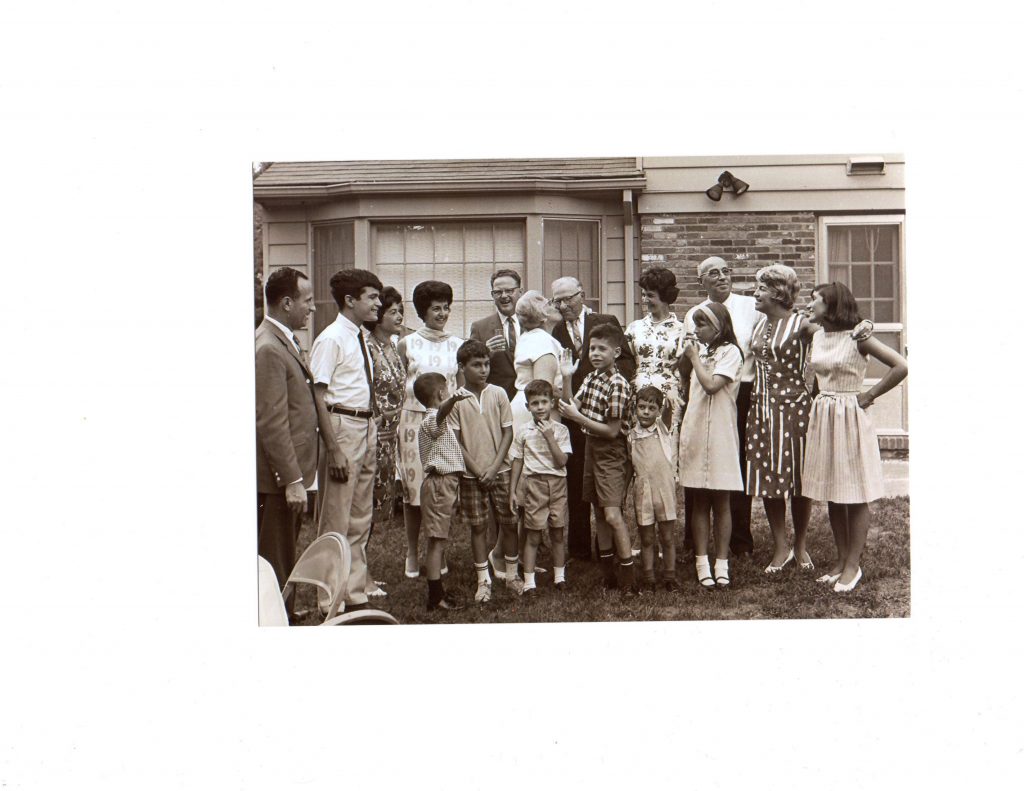
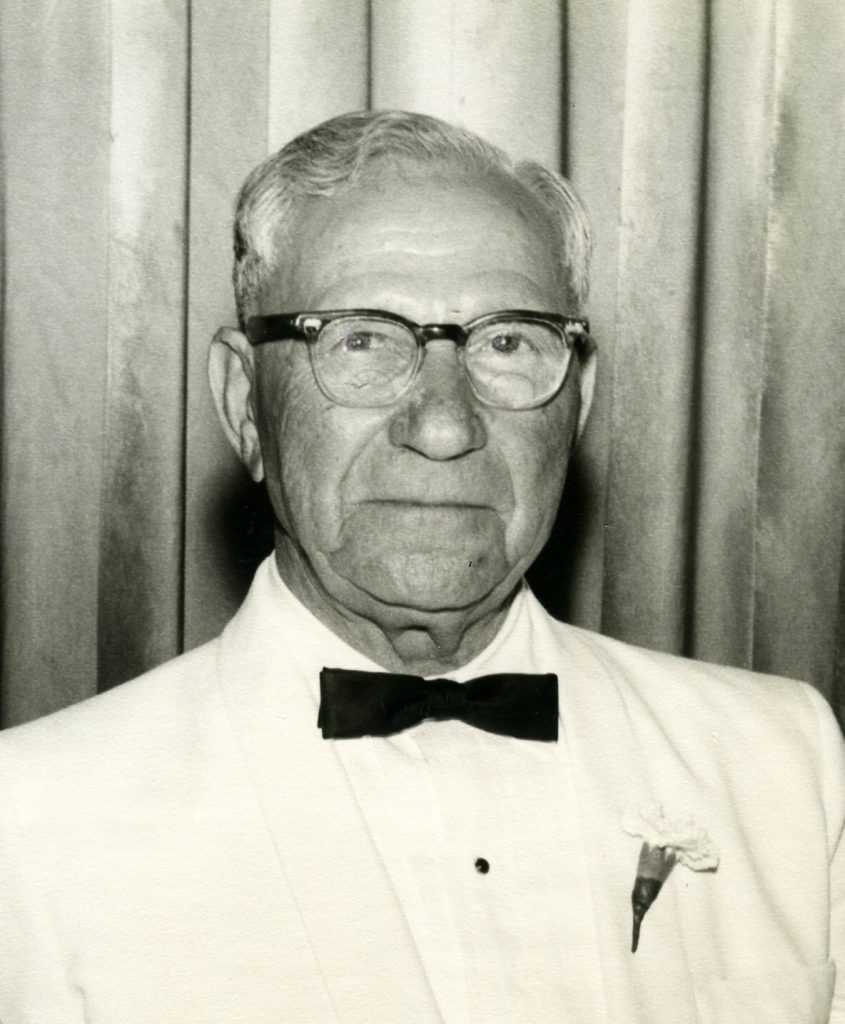
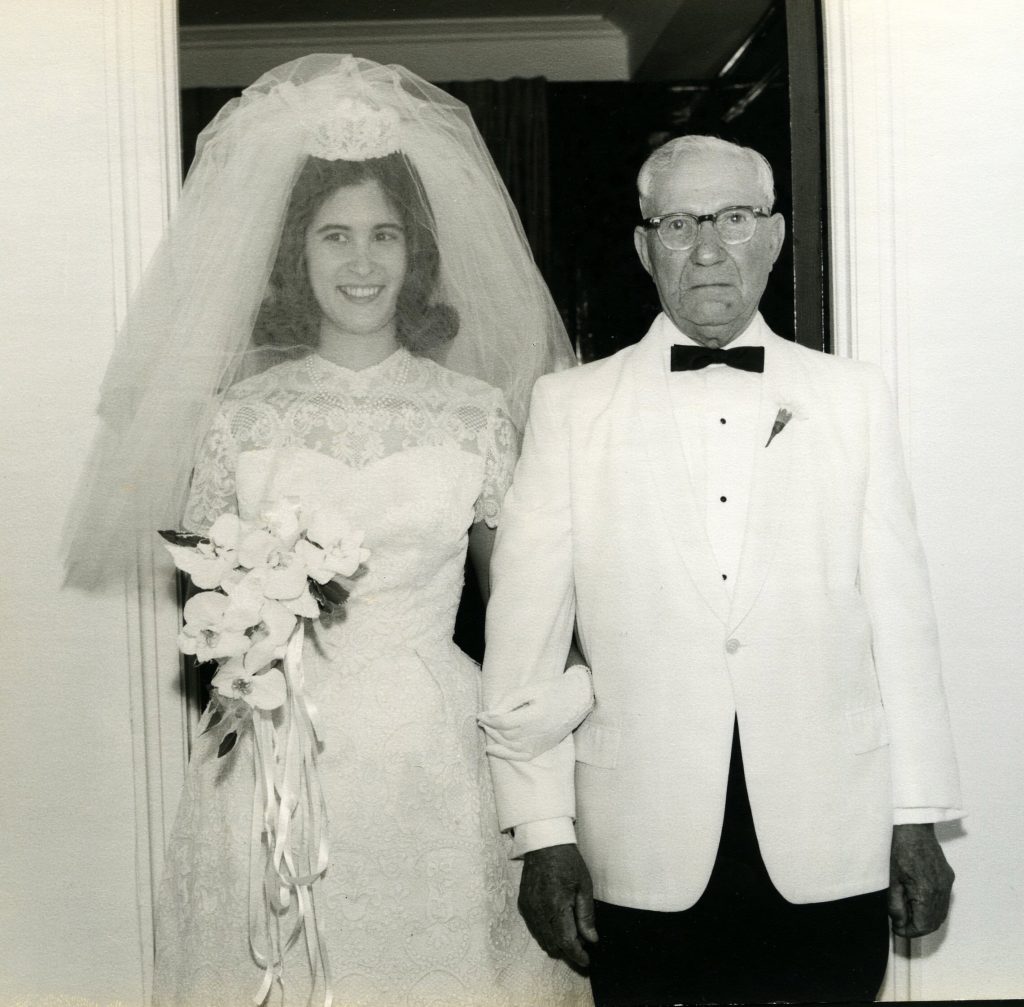
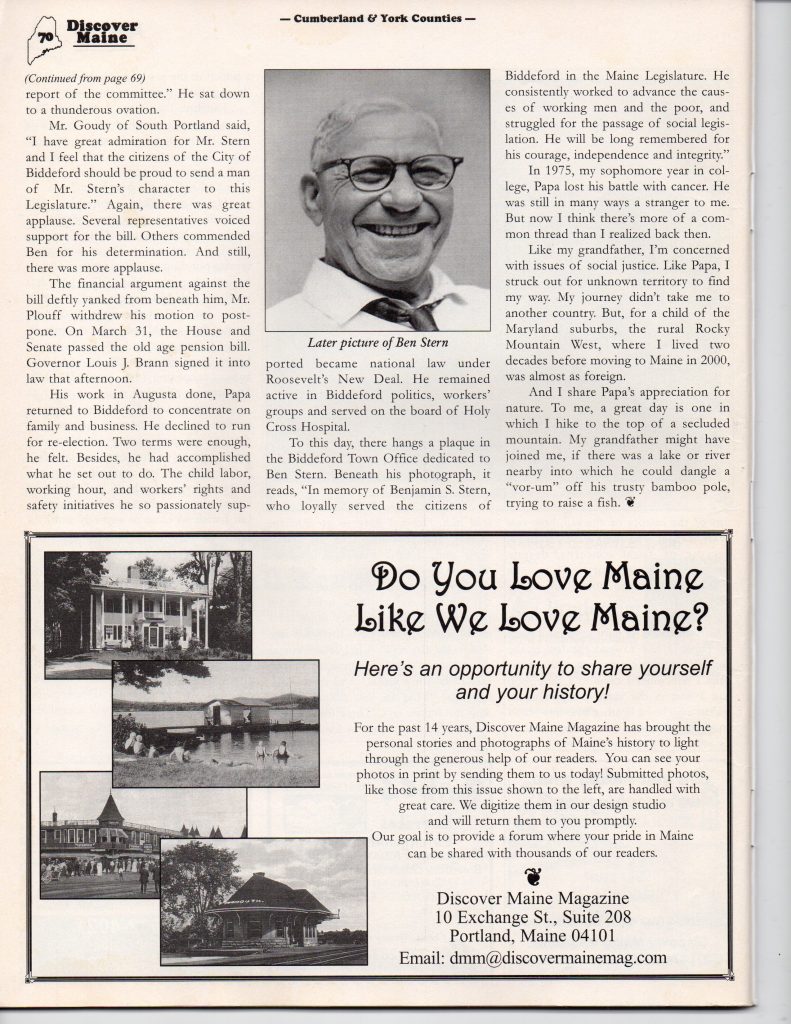
George Thatcher (Thacher)
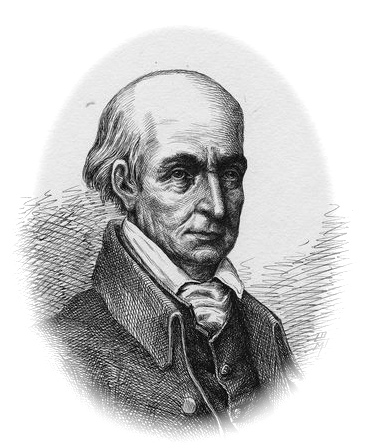
Born in Yarmouth Massachusetts, George Thatcher (Thacher) was the youngest in the family of 11 children. He graduated from Harvard College in 1776, studied law, and opened a practice in York, Maine. In 1784 he married Sarah Savage and lived on South Street in Biddeford and raised a family of five daughters and five sons. He changed the spelling of his name to Thacher in 1815 at the age of 61.
He was elected to the first United States Congress in 1789, a representative of the District of Maine – then a part of Massachusetts, and witnessed the inauguration of George Washington as the first president of the United States. Before he resigned in 1801 he had been elected from a far corner of the Union to a seat in the United States House of Representatives for 12 years in a row- more than any other legislator in the history of Congress up to that time
Thatcher accepted an appointment to a Massachusetts state court in 1792 and served until 1800 when he was appointed to the state’s Supreme Judicial Court. During the organization of Maine’s statehood in 1819, he was a member of the convention that created the new state’s constitution. He resigned from the court in January 1824 and moved back to Biddeford.
Thacher and other citizens cherished their right to worship by their values and beliefs. Consequently, they left the First Parish Congressional Church on the Pool Road and started the Second Congregational Church on Crescent Street in Biddeford in 1797. They were the early Unitarians in the community and lead the way for the proliferation of other protestant denominations throughout the community.
As an ardent Unitarian, Thacher helped to sponsor the creation of Bowdoin College so that Maine would have its own institution of higher education and he donated a large collection of books to its library. Thacher also made more modest, single-volume donations to Fryeburg Academy and a final bequest of an additional hundred books to Bowdoin College upon his death. In recognition of the accomplishments of Judge George Thacher, the Biddeford House was renamed the Thacher Hotel in 1894.
An article written about George Thacher at the time of his death: “His heart was most disinterestedly benevolent and kind: all human beings were his friends and brothers. He could not see faults or he would not acknowledge them. No man can remember that he ever said a harsh thing of anyone who was absent.”

